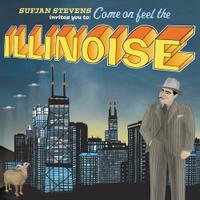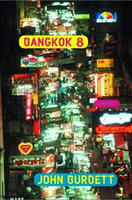Music
 LP III, The Soviettes
LP III, The SoviettesThe Soviettes' third full-length, the helpfully named LP III, is the musical equivalent of doing teaspoon shots of lemonade concentrate. 14 tracks clock in at under thirty minutes. Bass and drums race along punkishly and dual guitars crunch and squeal. What makes the band better than average are the massed female vocals - (says the jacket, "Everybody Sings") - that race along breakneck, occasionally devolving into shout-and-response chants, as on the infectious "Roller Girls," which brings in an all-female roller derby crew to scream "We're the Weapons of Mass Destruction! Bombs Away!" Hooks stutter out the window and whoosh past. Every so often, the only guy in the group - back behind the drum kit - will join in. Some of their best tracks throw some political consciousness in with the vodka-and-punch, as on the album-opening anti-imperialist hard candy "Multiply and Divide." They sound like a crack cheerleading squad trained by the Ramones.
 Illinois, Sufjan Stevens
Illinois, Sufjan StevensSufjan Stevens has stated in interviews his plans to record an album dedicated to each of the 50 states. Concerns about the Delaware EP aside, this year's follow-up to 2003's Michigan at least proves that whether or not he plans to finish, the project has already yielded strong fruit. On Illinois, Stevens, playing twenty-three instruments himself, assembles a sweeping collection of songs that turn alternately triumphant and mournful, carried by guitars, banjos, massed percussion, glockenspiels, ranks of horns, backing choirs, and muted keyboards. It is anchored, though, by Stevens' voice, which lends a whispered personal cast to the most celebratory orchestral numbers, like the propulsive, string-laden "Come On! Feel The Illinoise!" Like any good writer, Stevens sifts through history to pull the idiosyncratic details, patching together a version of Illinois more unique than it is comprehensive. Abraham Lincoln, Superman, Louis Armstrong, and Al Capone get nods, as do Chicago - City of Broad Shoulders - the Sear's Tower, Jacksonville, the Black Hawk Amerindians, serial killer John Wayne Gacy Jr., and an obscure state holiday for a Polish war hero, Casmir Pulaski Day. This last is one of the most affecting songs on the album, a hushed folk lament sung by a man watching a lover die slowly of bone cancer until she succumbs, "on the first of March, on the holiday." Moments of fragile emotion are strung together by minimalist-inspired horn parts and titles longer than some of the songs themselves. It all adds up to a compelling portrait of place, made stronger by its emotional heft.
Books
 Bangkok 8, by John Burdett
Bangkok 8, by John BurdettDevout Buddhist, whore's son, and police detective Sonchai Jitpleecheep, one of two cops in Bangkok's District 8 not on the take - and our narrator - observes late on in the novel: "This isn't a whodunit, is it?" And in Burdett's Thailand, that'd be missing the point. Half the fun of the novel isn't in figuring out the answer, it's in realizing that in a Buddhist murder mystery, the answer might not matter at all. And so there's lurid deaths by snake bite - of an American marine and Sonchai's Thai partner, respectively, to jump-start our narrative. There's a big, complex view of prostitution in a country run by it. There's byzantine corruption, spicy food, solemn Americans, backroom deals, well-drawn characters, and a fair bit of reincarnation. The people matter more than the crime ever did, and even the ones that don't make it out alive have another shot. It's pulled off with darkly edged humor, with a compelling sense of place, and with the knowledge that things rarely, if ever, resolve as neatly as we'd like to suppose. There's a reason that Thai soap operas feature a skeleton following young lovers into the sunset.
 Case Histories, by Kate Atkinson
Case Histories, by Kate AtkinsonKate Atkinson's new novel is haunted by loss and its collateral, formed out of three seemingly unrelated case histories - a missing three-year-old girl in 1970, a teenage daughter savagely murdered in '94, and the 1979 intersection of a postpartum depressed housewife, a domestic argument, and a woodaxe - told in impartially dated chapters that form the slender beginning. These unconnected mysteries collide and spool out in the present day under the investigation of police-turned-private investigator Jackson Brodie of Cambridge, England, recently divorced, a man who dreams of moving to France and whose own childhood forms a fourth, later case history that links him emotionally to the victims that employ him. Atkinson writes with a bleak, dry English wit that exposes bruises and cuts to the bone. What sets it apart sharply from your cut-rate procedurals is its emphasis, as much on the living as on those they've buried, and on the empty places where the missing should be but aren't.
More Reviews

No comments:
Post a Comment